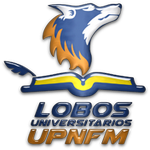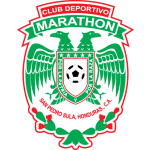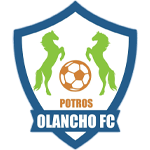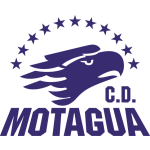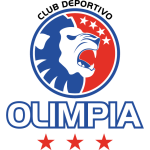Honduras (League) - AI Football Predictions Online
| AI | ||
|---|---|---|
 Liga Nacional Liga Nacional | ||
| 2025-12-17 01:00 |
| 1 1 |
| 2025-12-18 01:00 |
| 1 1 |
| 2025-12-19 01:00 |
| 1 1 |
| 2025-12-20 01:00 |
| 1 1 |
| 2025-12-21 01:00 |
| 1 1 |
| 2025-12-26 01:00 |
| 1 1 |
| 2025-12-28 01:00 |
| 1 1 |
| 2025-12-28 21:00 |
| 1 1 |
Statistics for Honduras (League)
Exploring the Passion of Football in Honduras
Honduras is a country where football is not just a sport; it is a way of life. The passion for the beautiful game runs deep within the veins of the Honduran people, transcending social and economic barriers. With a rich history of competition and a vibrant league system, football in Honduras has cultivated a sense of identity and pride among its citizens. This article delves into the evolution of football in Honduras, the structure of its leagues, notable clubs, and the impact of the sport on the nation.
The Historical Context of Football in Honduras
The roots of football in Honduras can be traced back to the early 20th century when the game was introduced by British merchants and immigrants. The first organized clubs began to emerge in the 1920s, with the creation of the Liga Nacional de Fútbol de Honduras in 1965 marking a significant milestone in the country’s footballing history. The league quickly became the centerpiece of Honduran football, showcasing local talent and engaging fans from all walks of life.
Throughout the years, the national team has seen its share of highs and lows, with memorable moments such as qualifying for the FIFA World Cup in 1982, 2010, and 2014. These occasions not only galvanized national pride but also inspired a generation of young players to pursue their dreams on the pitch. The evolution of football in Honduras reflects the resilience of its people, who find solace and joy in their national sport.
The Structure of Honduran Football Leagues
The Liga Nacional de Fútbol Profesional de Honduras is the premier professional league in the country, consisting of ten clubs competing annually in a league format. The league operates on a system of promotion and relegation with the second tier, Liga de Ascenso, which allows for a dynamic flow of talent between levels. This structure not only enhances the competitive nature of the sport but also provides young players the opportunity to showcase their skills and rise through the ranks.
Each season culminates in a playoff system, where the top teams battle for the coveted league title. The intensity of these matches, often played in front of passionate home crowds, creates an electric atmosphere that embodies the spirit of Honduran football. Clubs like Olimpia, Motagua, and Marathon have historically been dominant forces in the league, with rivalries that ignite local passions and draw large audiences to stadiums.
Notable Clubs and Their Impact
Olimpia, founded in 1912, is one of the most successful clubs in Honduran history, boasting numerous league titles and a storied legacy. The club’s iconic yellow and black colors are synonymous with excellence and have produced a plethora of international talents, including players like Carlos Pavón and Wilson Palacios. The fervent support from their fanbase, known as “Los Albos,” creates an environment where players thrive and the club’s culture of winning is perpetuated.
On the other end of the spectrum, Motagua, established in 1928, has cultivated its own legacy and fierce rivalry with Olimpia, creating one of the most electrifying derbies in Central America, known as "El Clásico." The historical context of this rivalry has led to unforgettable matches, filled with drama, skill, and a testament to the players' dedication. The passion displayed by the fans during these encounters is a beautiful representation of the cultural significance of football in Honduras.
The Role of Football in Honduran Society
Football in Honduras extends beyond the pitch; it is a vital part of the social fabric of the country. The sport has the power to unite communities, foster local pride, and provide hope in challenging times. Grassroots initiatives have emerged, aiming to develop young talent and promote the sport at the community level. Schools and local clubs often collaborate to create programs that encourage youth participation, emphasizing the importance of teamwork and discipline.
Moreover, the success of Honduran players on the international stage has further elevated the sport's profile within the country. Players like Maynor Figueroa, who has played in the English Premier League, and Alberth Elis, who has made waves in Major League Soccer, serve as role models for aspiring footballers. Their journeys inspire countless young athletes, proving that with hard work and determination, dreams can become a reality.
Challenges and Future Prospects
Despite the rich footballing culture, Honduras faces challenges that impact the development of the sport. Issues such as economic instability, limited infrastructure, and violence can hinder the growth of football at both grassroots and professional levels. However, initiatives to improve facilities and provide better training for coaches and players are underway. The commitment from both the Football Federation and private sectors to invest in the sport is a positive step towards enhancing Honduras's footballing landscape.
As the country looks to the future, the potential for growth is immense. With a burgeoning youth talent pool and increasing visibility of Honduran football on the global stage, the possibilities are endless. Leveraging the passion that fuels the game, Honduras can continue to carve its name in the annals of football history, ensuring that the next generation of players has the resources and support to succeed.
In summary, football in Honduras is a vibrant tapestry woven with history, passion, and community spirit. From the electrifying matches of the Liga Nacional to the inspiring stories of players who have made it big, the sport remains a cornerstone of Honduran identity. As the nation continues to embrace the beautiful game, the hope is that it will not only entertain but also unite and uplift the people of Honduras for generations to come.



